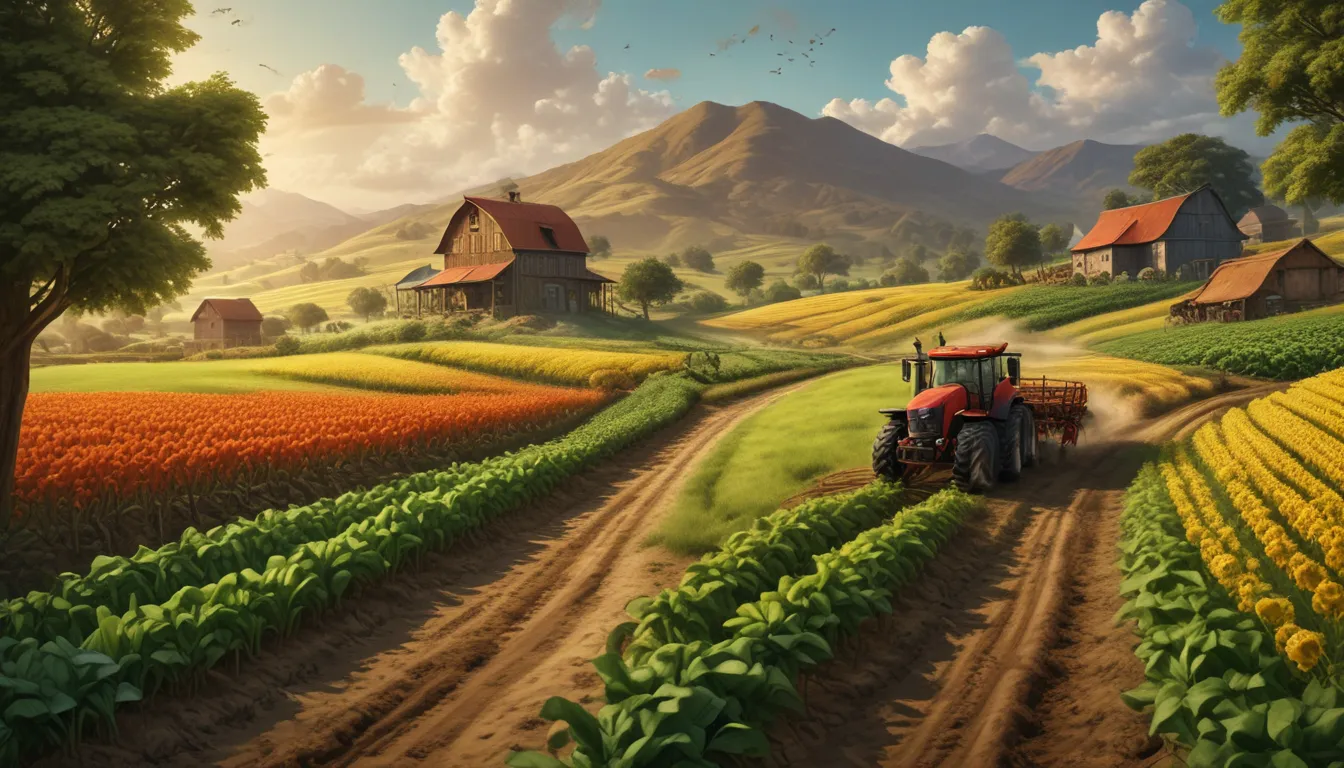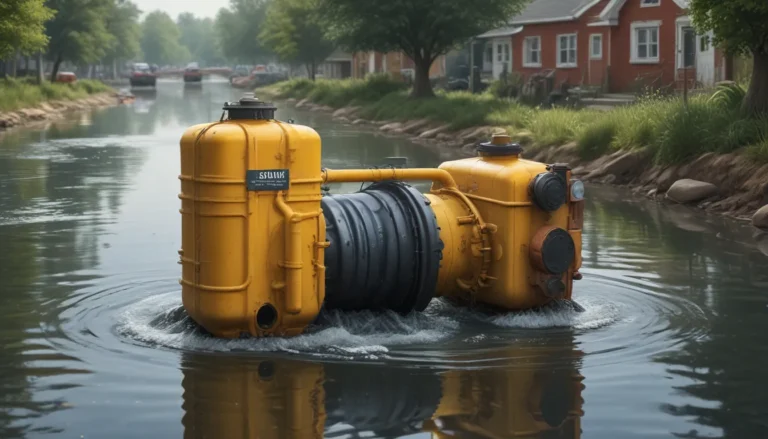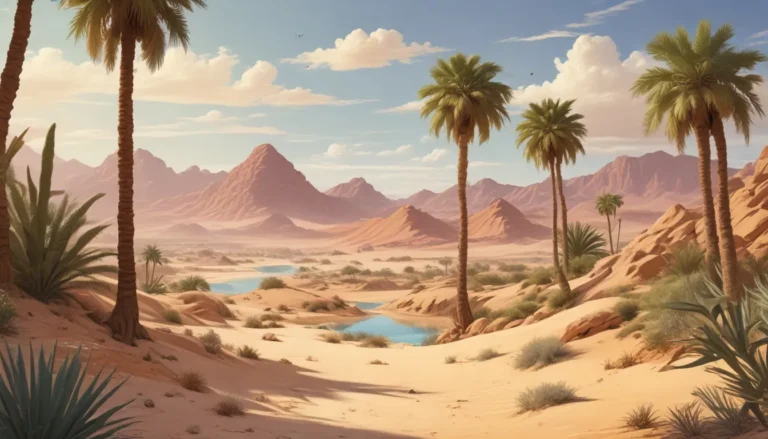A Note About Images: The images used in our articles are for illustration purposes only and may not exactly match the content. They are meant to engage readers, but the text should be relied upon for accurate information.
Welcome to the enchanting world of agriculture, where ancient practices and modern innovations converge to sustain our food supply and shape our environment. In this enlightening article, we will uncover twelve intriguing facts about agriculture that will captivate your curiosity and leave you inspired. Whether you are a seasoned farmer, a culinary enthusiast, or simply a lover of learning, join us on this journey as we unravel the mysteries behind this vital industry.
The Ancient Roots of Agriculture
Dating back thousands of years, agriculture is the oldest industry in the world, serving as the cornerstone of human civilization. From the earliest hunter-gatherer societies to the sophisticated farming techniques of today, agriculture has been pivotal in human survival and development.
Sustainable Farming Practices
Crop rotation is a sustainable farming method where different crops are planted sequentially to enhance soil fertility and balance nutrient demands. This practice not only improves productivity but also reduces soil depletion, making agriculture more eco-friendly in the long run.
Brazil: The Beef Export Giant
Surprisingly, Brazil holds the distinction of being the largest exporter of beef globally. With its vast agricultural land, conducive climate, and efficient production systems, Brazil has established itself as a powerhouse in the beef industry, supplying meat to countries around the world.
Hydroponics: Growing without Soil
Hydroponics, a revolutionary soilless farming technique, allows plants to grow in nutrient-rich water solutions. By directly providing essential nutrients to plant roots, hydroponics eliminates the need for traditional soil cultivation, offering a highly efficient and controlled growing environment.
The Rise and Fall of DDT
Once a widely used pesticide in the mid-20th century, DDT (dichlorodiphenyltrichloroethane) was touted for its effectiveness in combating insect-borne diseases. However, its harmful effects on the environment and human health led to its eventual ban in many countries.
The Floral Marvel of the Netherlands
The Netherlands boasts a global reputation as the largest exporter of flowers, showcasing its vast flower fields and advanced horticultural practices. Its favorable climate and well-established flower markets have positioned the country as a premier source of exquisite blooms worldwide.
Addressing Greenhouse Gas Emissions
Agriculture significantly contributes to greenhouse gas emissions through activities like methane release from livestock and nitrous oxide emissions from fertilizers. Implementing sustainable farming practices and effective mitigation strategies are crucial steps in reducing the environmental impact of agriculture.
GMOs: A Game-Changer in Agriculture
Genetically modified crops, or GMOs, have revolutionized agriculture by exhibiting traits such as pest resistance, increased yield, and enhanced nutritional value. These genetically engineered crops have played a pivotal role in enhancing agricultural productivity and addressing global food security challenges.
Ancient Irrigation Systems
Ancient civilizations like the Mesopotamians and Egyptians were pioneers in developing irrigation systems thousands of years ago. By harnessing water resources and directing them to agricultural fields, these early irrigation systems played a vital role in increasing crop production and sustaining civilizations.
The Organic Farming Paradigm
Organic farming emphasizes natural fertilizers, crop rotation, and biological pest control methods to promote sustainability and biodiversity. By eschewing synthetic chemicals, this farming approach fosters soil health, protects ecosystems, and contributes to environmentally friendly agricultural practices.
The Tractor Revolution
The introduction of the tractor in the early 20th century revolutionized agriculture by replacing horse-drawn equipment and manual labor. Tractors have significantly increased efficiency, productivity, and mechanization in farming, reshaping the industry and paving the way for modern agricultural practices.
Precision Agriculture: Harnessing Technology
Precision agriculture utilizes advanced technologies like GPS, remote sensing, and data analytics to optimize farming practices. By precisely tailoring inputs such as water, fertilizers, and pesticides, farmers can minimize waste, reduce environmental impact, and maximize crop yield and quality.
Concluding Thoughts
These twelve captivating facts about agriculture offer a glimpse into the diverse and fascinating realm of this indispensable industry. From ancient farming traditions to cutting-edge technologies, agriculture continues to be a driving force in our society, economy, and environment. By embracing sustainable farming practices and supporting innovation, we can ensure a thriving future for farmers and consumers alike.
FAQs: Unveiling Common Queries
- How long has agriculture been practiced?
-
Agriculture has been practiced for thousands of years, with evidence of early farming dating back to around 10,000 BCE.
-
What are the main crops grown in agriculture?
-
The main crops grown in agriculture vary by region, climate, and market demands. Common crops include wheat, corn, rice, soybeans, and cotton.
-
How has technology impacted agriculture?
-
Technology has revolutionized agriculture, leading to increased efficiency and productivity. Innovations such as precision farming, genetic engineering, and mechanization have transformed the industry.
-
What is sustainable agriculture?
-
Sustainable agriculture aims to meet present needs without compromising the ability of future generations to meet their own. It promotes ecological balance, resource conservation, and social well-being.
-
How does agriculture impact the environment?
-
Agriculture can have positive and negative impacts on the environment. Sustainable farming practices minimize negative effects like soil erosion, water pollution, and greenhouse gas emissions.
-
What are the challenges facing agriculture today?
-
Challenges facing agriculture today include climate change, water scarcity, pest and disease management, and sustaining profitability for farmers.
-
Is organic farming a form of agriculture?
-
Yes, organic farming is a form of agriculture that relies on natural processes and avoids synthetic chemicals. It promotes biodiversity, soil health, and animal welfare.
-
How does agriculture contribute to the economy?
-
Agriculture contributes to the economy through job creation, export revenue, and providing raw materials for various industries like food processing and textiles.
-
What is the future of agriculture?
-
The future of agriculture will likely be shaped by advancements in technology, sustainable practices, and a focus on producing more with less. Vertical farming, robotics, and AI are expected to play significant roles.
-
How can consumers support sustainable agriculture?
- Consumers can support sustainable agriculture by choosing locally sourced and organic products, reducing food waste, and advocating for policies that promote environmentally friendly farming practices.
Embrace the wonder and wisdom of agriculture as we journey through the intricate tapestry of farming traditions, innovative practices, and sustainable solutions that shape our world.Together, let’s cultivate a brighter future for agriculture and our planet.






